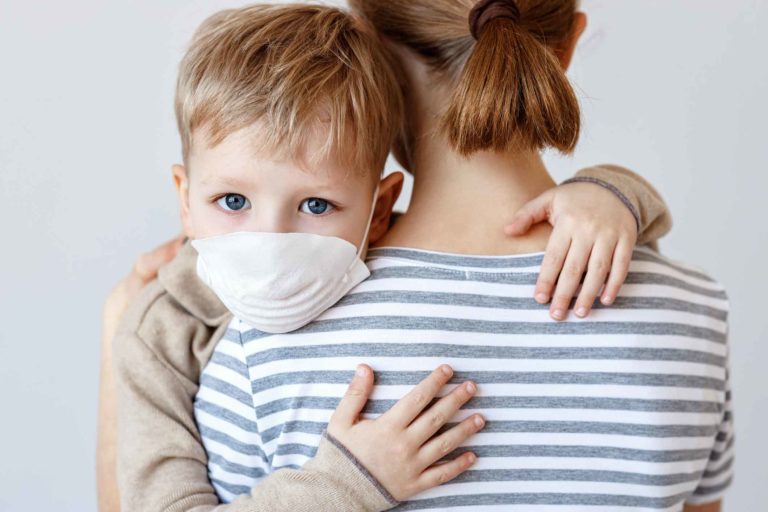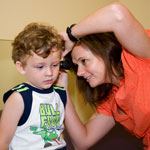
Families all over Williamson country are still working their way through monumental changes created by COVID-19. With changes in school reopenings and plans for remote learning, many children are worried about seeing their friends, changes in school routines, and more. Anxiety affects more than just adults – children and teens are just as much at risk for anxiety, especially as they face disruptions to their normal routines.
When anxiety goes unchecked, it can affect both the brain and the body.
Kids may feel helpless or sad. Younger children may communicate their anxiety by acting out, while teens may sleep much more or much less. Fortunately, there are several ways parents can help kids control their COVID-related anxiety.
-
Create a Routine
Kids of all ages crave routine, so make one and stick to it. If going to school virtually, create a designated workspace and carve out times for assignments and work time. Work with older children to create a schedule that works for them, with dedicated meals and bedtimes. Healthy routines encourage children to stay in regular sleep patterns, which can help anxiety. Make age-appropriate goal charts, to-do lists, and place them in places that are easy to see. This will not only allow your child to track the day, but it also provides a sense of accomplishment.
-
Check-In More Frequently
We all like to be reminded that others care, especially when we are feeling anxious or down. Check-in and ask your child about their concerns, fears, and feelings. Validate them and help them cope by offering some coping mechanisms of your own: “When I feel sad, sometimes I cry, but a hug from you makes me feel better.”
It also helps to equip children with cues that will help them feel better. Ask, “When you are feeling anxious, what is one fun thing we can do together?” Or, “When you’re feeling sad, what two silly things do you want me to say to make you laugh?”
-
Recognize the Signs
Many parents might not realize the anxiety their children are feeling, especially when they are grappling with hard feelings of their own. Be on the lookout for common signs of anxiety, like biting nails, restlessness, difficulty concentrating, and sleep disruptions. Isolation, aggression, or increased tantrums can also be telltale signs.
Parents can often help their children manage their anxiety at home by teaching them to recognize the signs and providing healthy coping mechanisms. However, when anxiety becomes debilitating, persisting over time, and markedly affecting appetite and sleep, professional help may be warranted. If this occurs, contact our office to set up an appointment.
During these uncertain, Pediatric Associates of Franklin is here to help. Following these tips can help children manage their concerns as we navigate this pandemic together.
The information and content on our website should not be used as a substitute for medical treatment or advice from your doctor.
Model/stock photo above.




